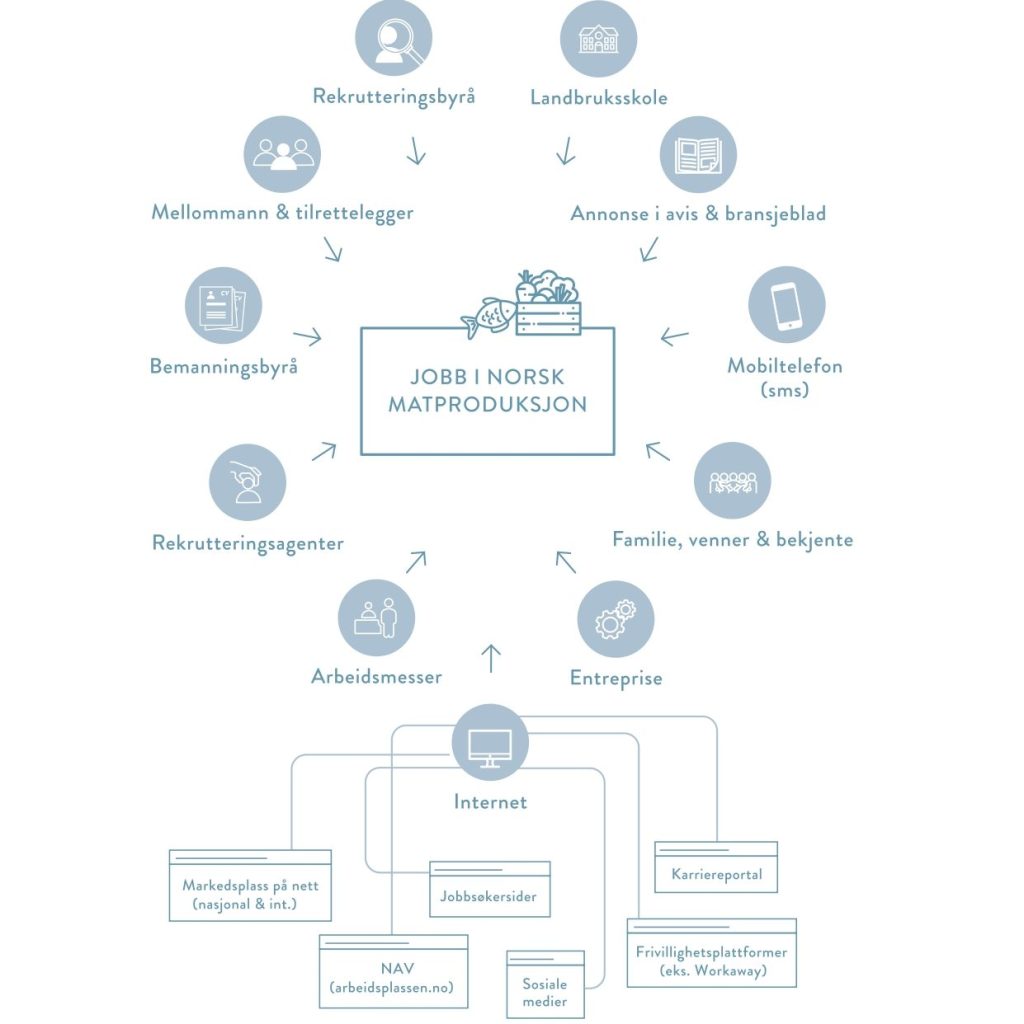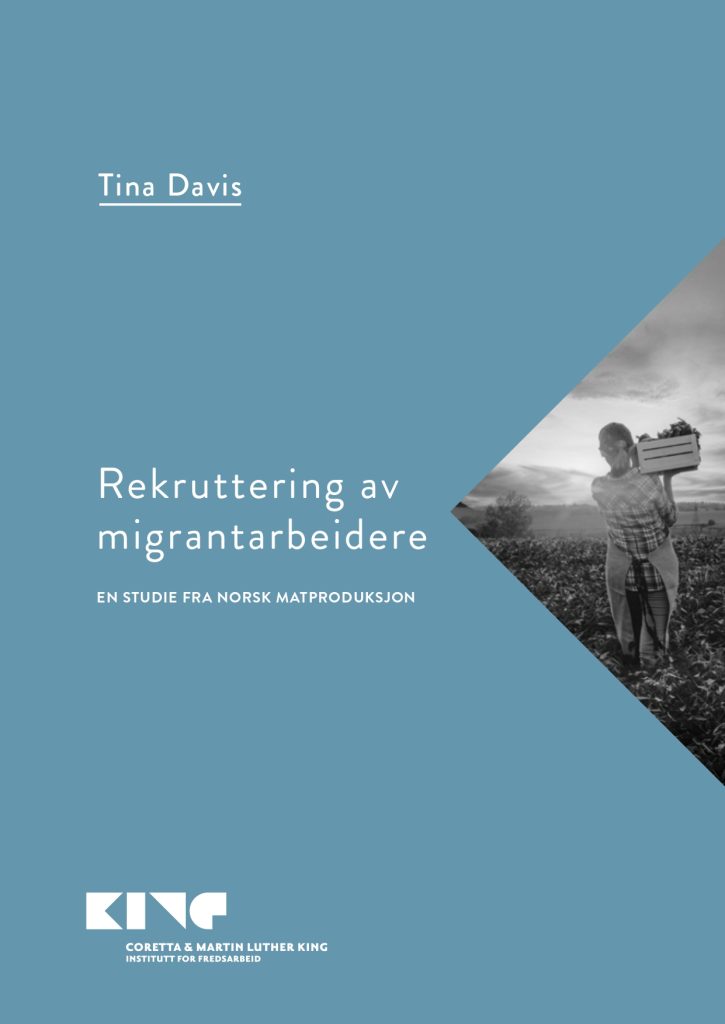RESEARCH PROJECT. RECRUITMENT OF MIGRANT WORKERS.
Recruitment of migrant workers in Norwegian food production.
We are excited to share findings from our groundbreaking study, «Recruitment of migrant workers in Norwegian food production.» This study sheds light on urgent concerns about the treatment of migrant workers in Norway.
Led by Dr. Tina Davis, one of the world’s leading experts in this field, the research project was carried out in collaboration with ROSA project, NNN, Fellesforbundet, and Gartnerhallen, and was funded by Bærekraftfondet and the King Institute.
Our study found that there is a need for more knowledge about the recruitment process for migrant workers in Norwegian food production and other low-skilled sectors. This process often takes place across borders, with limited transparency into the agreements that are made.
Our starting point was to explore the connection between recruitment and exploitation in Norwegian working life. We reviewed the relevant framework, mapped the actors involved in recruitment processes, examined how migrant workers find jobs, and explored the many recruitment channels for Norwegian food production.

The report is based on 19 qualitative interviews with migrant workers from 13 countries, and 20 qualitative interviews with experts who work with this group. The interviews were conducted in the latter half of 2022.
The migrant workers mentioned in this report have experienced a spectrum of different working conditions, from decent and good working situations to gross exploitation. Although most employers in Norwegian food production operate seriously, there is a group of unscrupulous actors who contribute to distorting competition and pulverizing the Norwegian working model. What the employees who experienced good working conditions and were satisfied with their employer had in common was that they were employed directly.
We have made an in-depth analysis of various causes and dynamics that can
enable fraudulent actors to exploit migrant workers linked to the recruitment process. Factors such as lack of language skills, social network and knowledge of their own rights in Norway can make it difficult for migrant workers to navigate situations where they are exposed to indecent working conditions. Some do not know where and how to seek help when needed.
The King Institute’s findings show, among other things, a connection between recruitment and fraudulent agreements, the use of facilitators and intermediaries; costs charged to workers; lack of information about own rights; debt; discrimination against workers; and evasion of wages.
Most employers treat their workers in line with the regulations and the norm in Norwegian working life. At the same time, there is a small group that manages to undermine the system at the expense of migrant workers’ rights.
The personal price workers who experience exploitation have to pay when dealing with fraudulent actors can have huge consequences for the individual worker’s life, often without them having the opportunity to seek compensation after the end of their employment in Norway. It also has negative consequences for the industries.

There is a need for much closer cooperation between business, the government apparatus, trade unions and civil society organizations to ensure safer processes related to the recruitment of migrant workers for jobs in Norway. Lack of information: Migrant workers often lack access to vital information about their rights and working conditions. This lack of information contributes to their vulnerability and makes it difficult for them to deal with irregularities.
